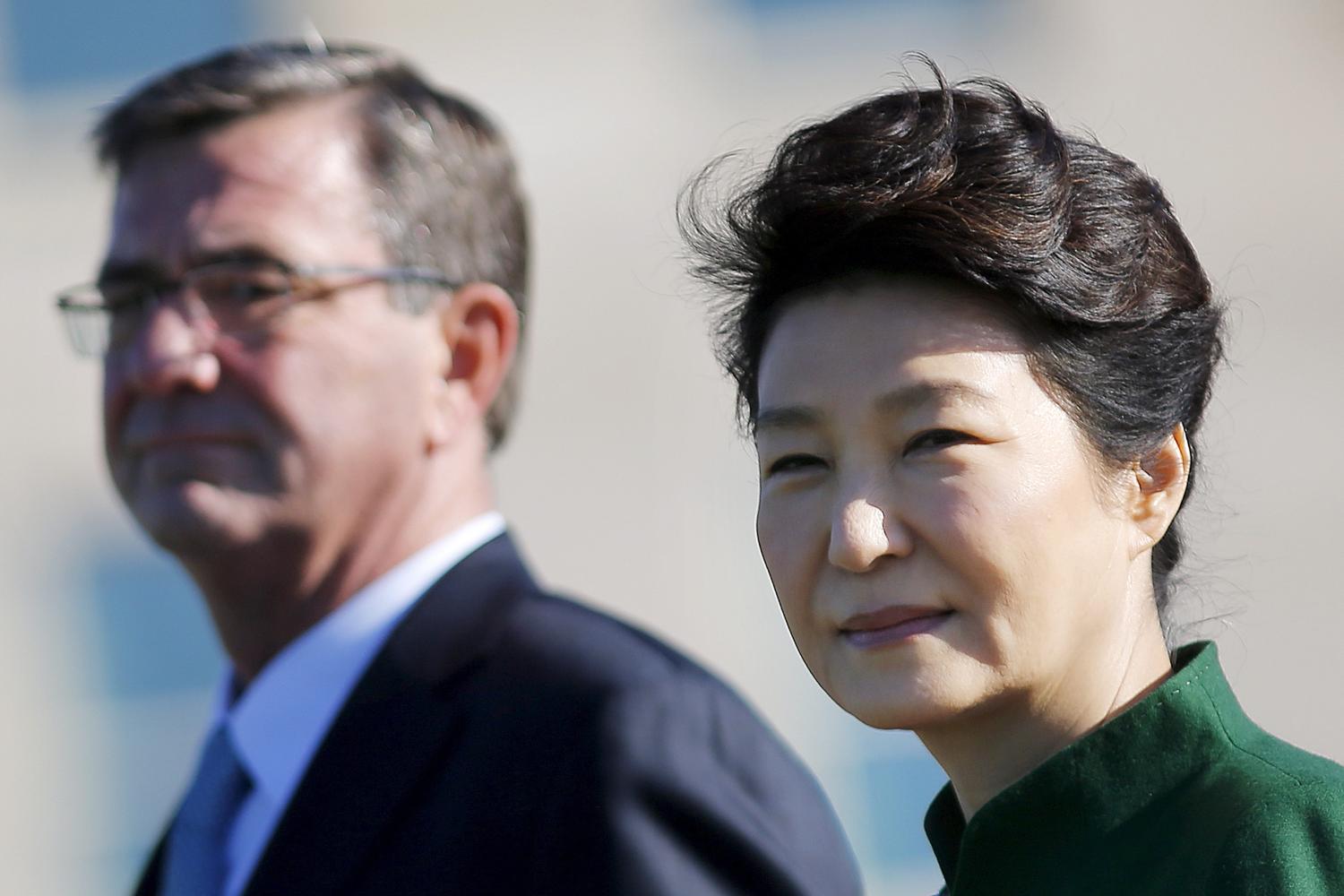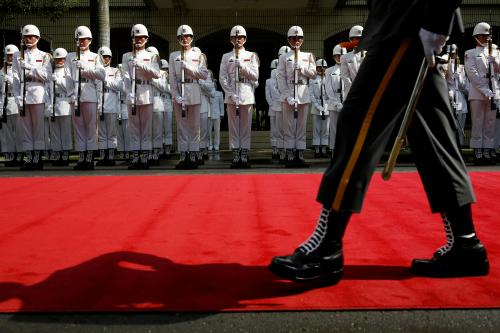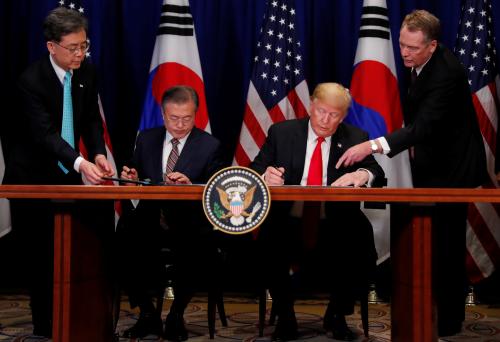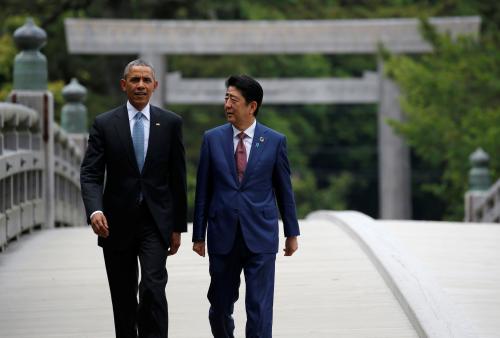The following paper is part of the Brookings Order from Chaos series Alliances & partnerships: U.S. commitments in the Asia-Pacific, in which contributing scholars offer their analyses of the various U.S. alliances and security partnerships, along with the diverse economic, diplomatic, and security challenges that impact those critical commitments.
The powerful deterrent provided by the U.S.-Republic of Korea (ROK) security alliance has kept the peace on the Korean Peninsula for over 63 years. Today, with the rising threat of a nuclear-armed, aggressive North Korea, growing friction in U.S.-China relations, and rapidly changing security dynamics in the Asia-Pacific region, the U.S.-ROK security alliance is more important than ever and a pillar of America’s ability to project military power, deal with uncertainty, and maintain stability in a region of vital importance to American interests. The 28,500 U.S. forces in Korea demonstrate America’s determination to defend a key ally and reflect U.S. commitment to the region at large.
Nurturing and strengthening the alliance relationship—which has served U.S. interests well—will be a central task for the next U.S. president. This will be particularly true in light of growing concerns in the region about America’s staying power, worries about neo-isolationist trends in the United States, and fears about China’s attempt to become the region’s dominant actor. Another challenge will be South Korean politics, where a victory by the center-left in the 2017 presidential election could bring to power forces critical of the alliance, sympathetic to China, and inclined to adopt a softer line towards North Korea.
Thanks to the efforts of both countries, the U.S.-ROK alliance is stronger and more cooperative than it has ever been. But the alliance can become even closer if it is managed well. If it is, the result will be a more prominent American profile in Asia at a time when the regional demand for U.S. leadership is greater than ever.
The Brookings Institution is committed to quality, independence, and impact.
We are supported by a diverse array of funders. In line with our values and policies, each Brookings publication represents the sole views of its author(s).







